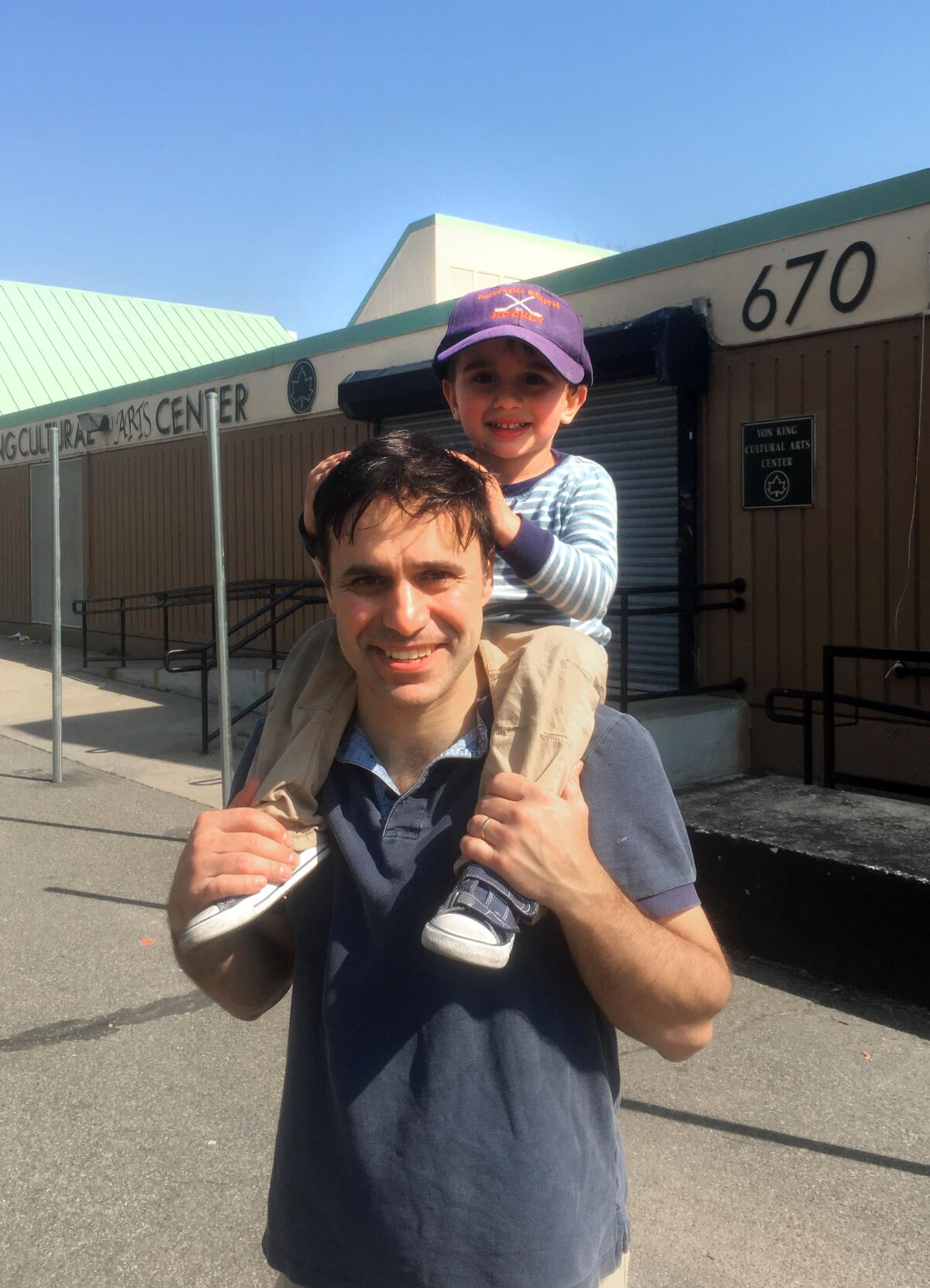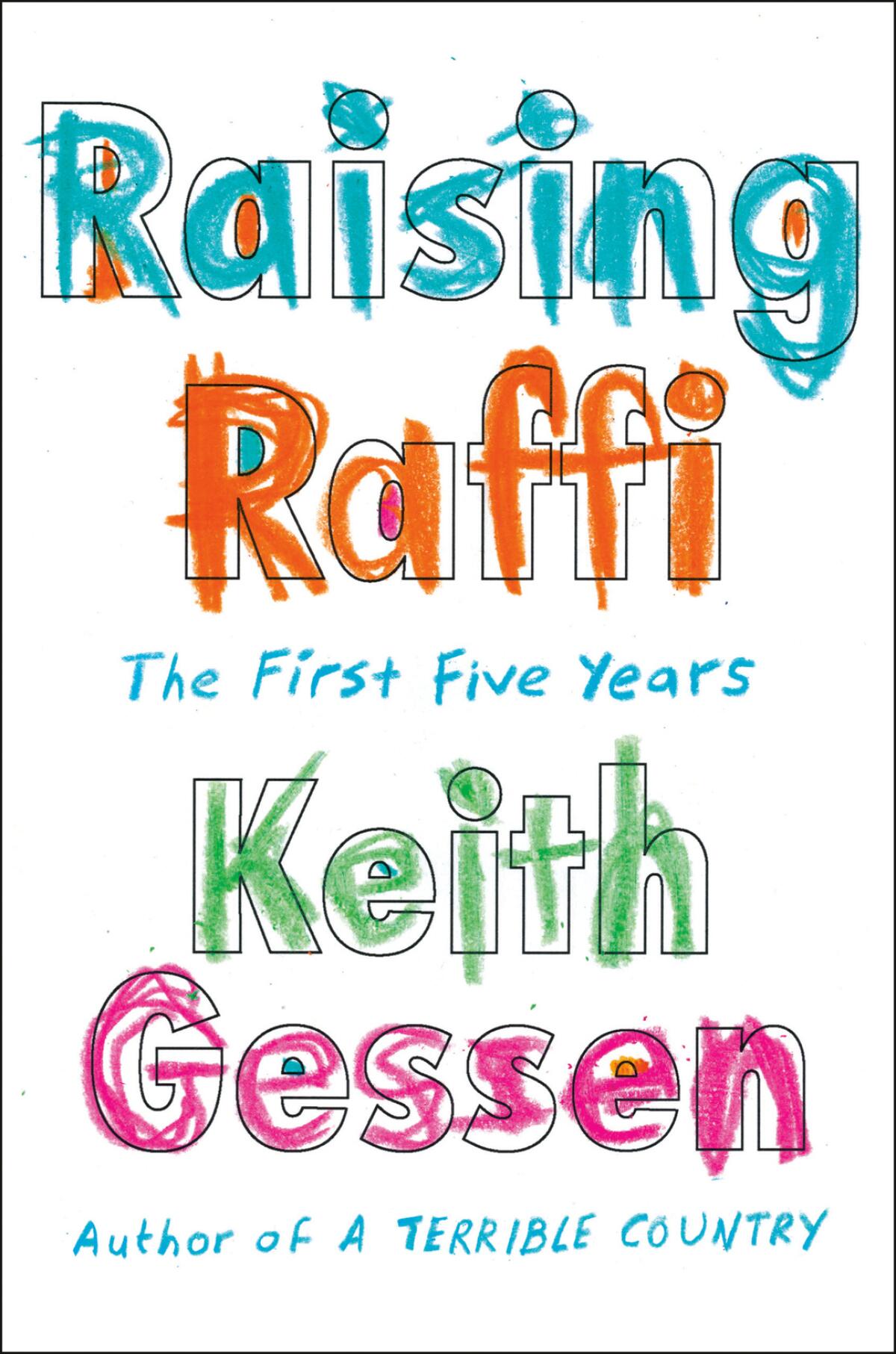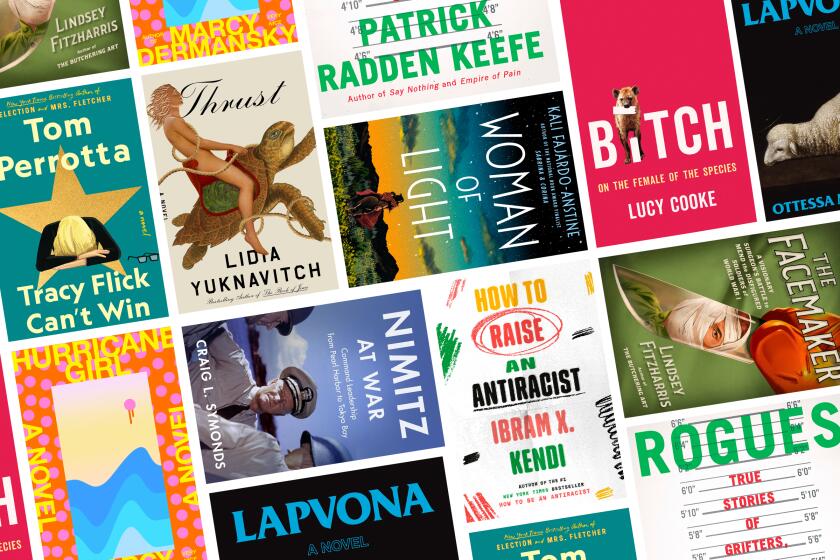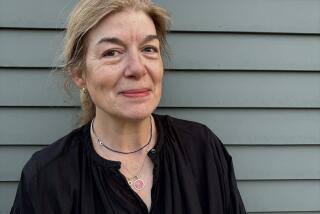Fatherhood books didnât help Keith Gessen much. He wrote one anyway

On the Shelf
Raising Raffi
By Keith Gessen
Viking: 256 pages, $27
If you buy books linked on our site, The Times may earn a commission from Bookshop.org, whose fees support independent bookstores.
Keith Gessen is a journalist and critic, and he approached fatherhood much as youâd expect a journalist and critic would. Go to ground on the subject: Explore the scholarly literature, talk to other parents, interview experts. Bring an atmosphere of well-rounded preparation to the business of child-rearing.
Of course, children have a way of wrecking all that, jamming a sippy cup into the gears of a meticulously calibrated parenting process.
In his new book, âRaising Raffi: The First Five Years,â the n+1 magazine co-founder, novelist (âAll the Sad Young Literary Menâ) and New Yorker contributor describes the surprising, joyful and often enervating experience of raising Raphael, his son with novelist Emily Gould. As a toddler, Raffi, who turns 7 today, was bright and fun-loving if occasionally aggression-prone. (âYou donât know anything about yourself until the day your adorable little boy looks you in the eye, notices that your face is right up close to him, and punches you in the nose,â Gessen writes.) But itâs also a book about how books can only do so much to make us better parents â or to address the isolation and confusion that often accompanies parenthood.
âItâs not like the books are not helpful â Iâve learned a ton from even the cheesiest advice books,â says Gessen, speaking via video chat from his office at Columbia University, where he teaches journalism. âYou end up getting some kind of useful advice that you can use in certain situations. But thereâs a very clear limit. You run up against the personality of your child. And also against your own limitations.â
In âAll the Sad Young Literary Menâ by Keith Gessen, a fresh crop of literary intellectuals meets the modern world.
Dad-focused literature has a unique set of limits, as Gessen notes early in the book. Fathersâ memoirs tend to devolve into caricatures of either âstupid dad, who canât do anything right, or superdad, a self-proclaimed feminist and caretaker.â Describing his halting efforts to teach Raffi Russian or engage him in hockey or find him a slot in New York Cityâs byzantine and politically fraught public school system, Gessen emerges as a guy somewhere between super and stupid. Call him humbled dad, making peace with daily humiliations and miscues but forever determined to understand what exactly has gone awry.
At first, Gessen was looking to write only occasionally about the kinds of parenting experiences that related to his own upbringing â hockey, Russian â since Gould was already writing regularly about Raffi in her own essays. But, as kids will, Raffi seized the narrative. âI kind of couldnât stop writing these essays,â Gessen says. âAfter I had like, four or five, I was like, âOh, this is kind of turning into a book.ââ

Perhaps inevitably, the book also became less about Gessenâs perspective than about the coupleâs agreements and arguments over schooling or parenting through COVID. In a bracing chapter about school shopping, for instance, he and Gould weigh the various forces influencing Raffiâs school options â diversity, test scores, a neo-capitalist system that makes picking a school absurdly competitive. âBrooklyn has just been broken by the choice paradigm,â Gessen says. âYouâre constantly like, âOh, is that school better? Should I get my kid into that? Is that better for him?â [It privileges] people who have the time and resources to make these choices, and thatâs a real problem.â
Itâs a dynamic that feels familiar across the countryâs largest cities, Los Angeles very much included. And even if, like Gessen and Gould, you have the time and resources, the process still repels clarity. âRaffiâs school can be quite strict and heâs a free spirit,â Gessen says. âSo sometimes weâre like, âAre they crushing his spirit, or is it perfect for him because he has very clear expectations about his behavior? He gets in trouble a little bit, but he loves it and he loves his friends. But we still donât know if we made the right decision.â
In the face of such uncertainty, Gessen can be funny and self-deprecating â without regressing into Stupid Dad. Writing about the agonies of subjecting a preschooler to Zoom-based schooling during the pandemic, he recalls trying to strike a balance between wanting Raffi to succeed and acknowledging the impossibility of asking a child not long out of diapers to play a leadership role in a virtual conference. âEmily accused me of trying to get an A in pre-K,â he writes. âIt was true I wanted an A.â
Profound remembrances of fatherhood, including Alaskan adventures and DNA revelations, Philip Rothâs tribute and an ode to a civil rights pioneer.
âRaising Raffiâ is strewn with such moments, in which Gessenâs try-hard work ethic seems so tragicomically mismatched to the project that he wonders if itâs worth trying at all. He is enchanted by a German scholarâs efforts to raise a bilingual daughter but also acknowledges research debunking any advantage bilingualism confers on a child. His eagerness to teach Raffi hockey is tempered by the stories he reads about the dismal lives of children who were bullied into the sport by aggressive fathers. Perhaps most frustratingly, he is laid low by the work of developmental psychologist Jonathan Tudge, who writes that children typically develop normally without much parental input.
Dissatisfied with that insight, Gessen calls up Tudge directly and asks for advice on the right way to parent. âBe true to yourself,â Tudge replies. Whatâs a parent supposed to do with that pro tip, especially when a child routinely runs your sense of self through a thresher? âMy personality canât do some of those things that youâre supposed to do,â Gessen says. âAnd also, my kid doesnât always react that well to that.â
In recent months, Gessenâs journalistic energies have been focused on writing about the war in Ukraine â which for the foreseeable future scotched his hopes of visiting his native Russia with Raffi. The war also has compelled him to unwind some of his lessons to Raffi about his homeland. âIâve always been like, âRussia is great! Itâs the biggest country in the world and someday weâll go there.â Then he heard something on the radio about the war, and heâs like, âWho are you rooting for?â And I said, âUkraine.â He found that puzzling. ⌠But he understood the concept of having a bad president.â
Whatever comes to pass, Gessen is fairly certain he wonât become a repeat offender in the dad-book space. As Raffi approaches tweendom and adolescence, âHeâs so much more conscious of himself in the world, which makes me feel a little more like he can express himself on these issues. He doesnât need me following him around and taking notes.â
Bethanne Patrickâs June highlights include Tom Perrottaâs âElectionâ sequel, essential new war histories and a fresh look at females of all species.
Athitakis is a writer in Phoenix and author of âThe New Midwest.â
More to Read
Sign up for our Book Club newsletter
Get the latest news, events and more from the Los Angeles Times Book Club, and help us get L.A. reading and talking.
You may occasionally receive promotional content from the Los Angeles Times.









